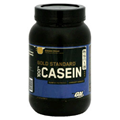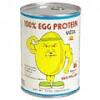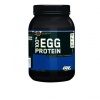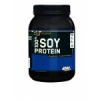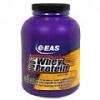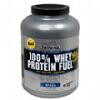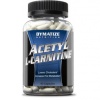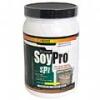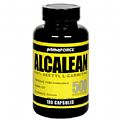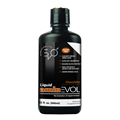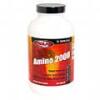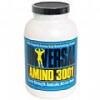- Protein consumption is a nutritional hot button and is widely debated about in the role it plays in either helping or hurting people reach their nutritional and fitness goals
- There are several protein myths out there and if you happen to fall prey to them it can cause serious physical, mental and financial setbacks
- We’ve written this article to help you sort through what is fact and fiction and to debunk the top 10 protein myths
- Not all proteins should be created equal and through exposure of mythical persuasion you will find that different types of protein influence the body in a variety of ways
#1 – High protein diets are bad for your kidneys
All of the studies done on the negative side effects were done on subjects that already had pre-existing kidney problems. The studies that have been done on healthy athletes with a high protein diet showed no correlation between kidney dysfunction and protein intake.
#2 – High protein diets cause osteoporosis
This is one of the protein myths based on a scientific hypothesis. The claim asserts that high protein intake raises the acid levels in the blood causing the body to use minerals that are stored in the bone to act as protective agents thus diminishing minerals needed to have bone density levels are greater than sedentary people.
#3 – All proteins are created equal
Several studies have shown that the different varieties of protein influence the body differently. For example, whey protein is digested rapidly and is more effective as a post workout supplement than its slow digesting casein counterpart. Casein is slowly absorbed into the system.
#4 – Athletes don’t need extra protein
This myth has largely been debunked but some still believe it. A study in the journal of Applied Physiology found that athletes taking in the recommended allowance of protein actually lost muscle.
#5 – Protein powders are better than food
Protein powders may be easier to absorb but that does not mean they are better. Different protein rich foods such as steak and chicken have different amino acid concentrations and profiles that cannot be replicated. They’re called “supplements” for a reason as we were not created to live on powder alone.
#6 – Protein needs are static
The body’s ability to adapt is amazing and when it comes to protein consumption it is no different. The body will adjust to static protein levels and the results will diminish. Common sense says that the harder you work in the gym the more protein you need and vice versa.
#7 – Everyone needs a gram of protein per bodyweight
Although a good rule of thumb to follow it depends on your fitness level and body type. Hard gainers typically need more protein. Most fitness novices do not work as hard in the gym therefore they do not need as much protein.
#8 – You can only digest 30 grams of protein per meal
Protein digestibility depends on your size and how hard you train. It has also been found that your body can digest more protein if eaten on a regular basis.
#9 – Dairy based proteins make you fat
This myth stems from people’s perception of dairy. Yes, a lot of cheese and ice cream will make you fat, but milk based proteins such as whey and casein have little to no fat and are low in calories.
#10 – Complimentary proteins promote growth
Non-animal proteins do not promote gains because they are incomplete. Animal based proteins are more complete than their non-animal based counterparts.
Tags: Protein Consumption, protein myths











